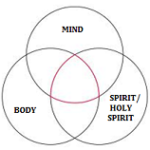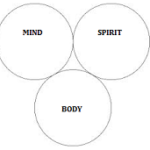“Mental and emotional well-being is essential to overall health.” – Surgeon General of America
Greetings Friends!
The Surgeon General of America says this about emotional wellbeing, “Mental and emotional well-being is essential to overall health. Positive mental health allows people to realize their full potential, cope with the stresses of life, work productively, and make meaningful contributions to their communities.” (http://www.surgeongeneral.gov) The World Health Organization (WHO), reported in 2012, “Depression is a common illness worldwide, with an estimated 350 million people affected. It can cause the affected person to suffer greatly and function poorly at work, at school and in the family. At its worst, depression can lead to suicide. Suicide results in an estimated 1 million deaths every year. The burden of depression and other mental health conditions is on the rise globally.” In May 2012, WHO called for a comprehensive, coordinated response to mental disorders at country level. (http://www.who.int/mediacentre) It is obvious that emotional health is an absolutely top priority for many countries. Depression, in whatever form it takes, is prevalent at epidemic proportions worldwide.
Emotional vulnerability leads to low self-esteem. Lower self-esteem makes us more susceptible to anxiety and stress. When our self-esteem is high we are stronger emotionally and more resilient to stresses from our environment. Studies have found that when our self-esteem is low we release more cortisol (high levels of cortisol can weaken the immune system) into our bloodstream when we experience stress and it circulates in our systems for longer compared to people who have high self-esteem. Other conditions are we’re prone to muscle aches, sleep deprivation, tiredness and weight gain, to name a few. We see the tentacles of emotional frailty can invade our health in far-reaching ways.

Depression, a Worldwide Epidemic. (Pic: “The Concern” by Alex Proimos from Sydney, Australia -Wiki Commons)
Self-esteem explains your self-worth. Your self-worth defines self-acceptance, and self-acceptance determines who you are – someone you can identify and live with. You identity is measured by rules of behavior you have accepted in your mind as socially “normal and acceptable” for you and your loved ones. When you fail to live up to the standard, you’re emotionally affected and your self-esteem hits a road hump, slowing you down. You go through the process of self-analysis and reflection. You dedicate yourself anew to your standard of moral goodness. If we fail to do this, we’ll keep punching ourselves emotionally in the gut of our self-worth. Eventually, they catch up with us, and depression sets in.
However, much of our human emotional response originate from the burden of care from living the three areas of life: health, wealth, and security or happiness. Many don’t understand the origin of their emotional life. Basically, they come from two main sources, the first has to do with a person’s moral code of good and evil, and second has to do with the burden of care in life. The latter is the most unstable form of emotional response because it has to do with life which vacillates irrationally and is always unstable. I call these three areas “the three drivers of life” we saw above. We compare ourselves with others; we have desires and wants; everybody has one so I want one too; etc, all these drive our emotions. The more stable emotional life stem from our moral standards of right and wrong, and ought to govern and provide stability in our lives. Often the damaging emotional aftermath comes from the spirit of care overriding the stabilizing emotions which suppose to anchor us. If “the three drivers of life” should drive our emotional life, then the compass which guide our self esteem changes for the worse. The “three drivers of life” are not necessarily wrong of themselves, they become iniquitous when roles are reversed and care overrides the primary moral code on which our lives ought to be anchored.
But here is a relevant question we ought to ask, what if the moral standard we have set for ourselves is unsound, even unworkable, so that, as the saying goes, we are constantly shooting ourselves in the foot of our emotional life. We ought to keep an open mind more especially for the sake of our emotional wellbeing. This moral grounding has to be an immovable anchor providing stability whenever the wind of care buffets and tries to change us. Here’s the Christian view on the topic: in the Christian faith, a believer is supposedly living with all the positive emotions of the Spirit. The Holy Spirit is the anchor of the Christian’s life. These emotional traits are revealed by Paul in his letter to the Corinthians, Galatians, Colossians, and Romans. It is commonly called fruits in Christian teaching, but they are actually emotionally attributes of God’s Love: patience, kindness, contentedness, being modest and unboastful, honor, unselfishness, calmness and dignity, humility, forgiveness and compassion, delighting in good and shunning evil, tolerance, responsibility, faith, hope, steadfast perseverance, joy, peace, goodness, generosity, gentleness, self-control, and so forth. The Bible reveals that the Spirit is the Personification of God’s Love in humans:- “God’s Love has been poured out into our hearts through the Holy Spirit, who has been given to us” (Rom.5:5).
 Dove – Symbol of Holy Spirit and God’s Love (Wiki Commons)
Dove – Symbol of Holy Spirit and God’s Love (Wiki Commons)
God’s Love is not some magical potion we ingest which mystically changes us, no, they are hands-on attributes displaying emotional response whenever practitioners (believers) put God’s Love in action. God’s Love is a mind thing and manifests in human feelings and affection. Oftentimes as believers, we view these fruits of the Spirit academically through the legalistic lens of religious proponents who want to make us “better people.” We live powerless lives when we apply these Love-traits that way. For first and foremost, these are emotional responses (attributes) which create excitement and undergirds God’s Love relationship. They are emotional Love-traits of God, and show us how the Tri-Personal God of the Father, Son, and Spirit have lived from eternity as One unified Being through their Love for each other. These are not inanimate qualities, but are living and powerful emotion-based virtues of God’s very nature of Love.
When a person receives Jesus he or she enters a life which God lives in His Tri-Personal Being, thereby, exercising these emotional attributes in his or her relationship with God. They reveal to us how we Love and relate with God and then we pass this on in the way we live with our fellow humans. (Luk.10:27) This is so vital to our emotional strength and health and our self-worth: when we receive the Triune God, then we live the “Triune Life.” To live the “Triune Life” simply means to live by the power of God’s Love, with all the emotional attributes of His Love. (1 Cor.13; Gal.5:22-24; also read Romans Chap. 12 & 13).
Joy – The Elixir of Life (Pic. by Rachel L. Johnson)
We were created in God’s image as the creation account in Genesis show. (Gen.1:26-27) You can say His Trinitarian nature is reflected in man through his triune makeup of mind, spirit, and body. Man’s emotional life is healthy when, like God, these three vital elements of man’s tri-personal being are integrated and lived in one unified front and expression. The most important of these three elements is the human spirit, which, when united with God’s Spirit subpoenas His emotional Love attributes into human action and activity. Thereby, living this integrated 3-dimensional life of God in His Love appears like this:
Fiq.1 – One Integrated 3-Dimensional Life Lived in The Spirit
We saw God’s Love attributes, now think of all the conflicting emotional traits which oppose them, for example, greed instead of generosity, pride in place of humility, discord instead of peace, indifference instead of compassion, maliciousness instead of goodness, self-indulgence instead of self-control, and so forth. They all produce negative emotions instead of the positive ones proceeding from God’s Love. When we live by the opposing attributes from God’s Love, they become our personal standards. (Gal.5:16-21) We are creatures of choice and free to choose the way we live, and as surely as leaven will raise the dough, we will lie on the bed we make for ourselves. So when our lives are not integrated with God’s through His Spirit, then we live a 1-dimensional solitary life like this:
Fig.2 – Solitary 1-Dimensional Life Lived in The “Self”
G.K. Chesterton said that humans are incomplete thinkers, “We want things in fragments, that way we do not have to think of our inconsistencies. That way, we do not mind when our work contradicts our ideals (or principles), or when our politics contradicts our faith, and we keep each thing in its watertight compartment.” (The Apostle of Common Sense, Pg.19) Yes, we try to live this “solitary” persona compartmentalizing our actions and living a life of contradictions. Most people live without activating their spiritual life, perhaps they are atheists, or for reasons known only to them. Then they try to live life on just mind and body which is impossible to do. (Fig.2). In fact, man cannot live without this spiritual aspect of his human makeup. If he chooses not to anchor himself in God’s Love attributes, then he automatically defaults to the devil’s spiritual traits, whether he likes it or not. Why, because life consists of his tri-personal being, and his spiritual life is an essential part of human personhood. Either we choose God’s Love and His way of life, or default to the one chosen for us by Adam. (Gal.5; Rom.12 & 13).
We live a ‘double life’ of the self-indulgent being unknowingly influenced by the unseen enemy, when we ought to freely choose to live one unified “Triune Life” in the Spirit of God. If we do not activate the spiritual aspect of life we are living against the grain of who we are as a person created in our Maker’s likeness. The end-result of that is we bring upon ourselves unwarranted stress which lead to all kinds of issues, especially to mental and emotional consequences. If this is not corrected, depression sets in, and the condition worsens with time unless we do something to reverse it.
However, where Love is unifying the 3-dimensional life (Fiq.1), depression has nothing to take hold on. Can depression exists in God presence? No, Christ came to give us a life in the Father’s presence and make the Spirit available to man. Depression and emotional insecurity thrives only where and when Love is non-existent.
![]()
“God Is Love” 1 John 4:8 – The Trinity Bound by Persons in Loving Relations in One God
The Bible is clear about this 3-dimensional aspect of man’s life and that it is to be expressed in unison and in harmony in a Trinitarian way. Paul said, “May God Himself (“God is Love” – 1 John 4:8), the God of peace, sanctify you through and through. May your whole spirit, mind (soul) and body be kept blameless at the coming of our Lord Jesus Christ.” (1Thes.5:23) Yes, Love and peace will dominate your life to the end of your days. The Bible shows also that only His Word, His guidance for us in this human existence, is capable of reaching down into the deepest parts of our being, to tap into our innermost feelings, our profoundest thoughts, where one else can, so we can find meaning and purpose in life. Without it, we’ll live empty lives, always in search for answers, and without direction we turn to the wrong sources which do us more harm than good.
Paul says to us, “For the Word of God is alive and active. Sharper than any double-edged sword, it penetrates even to dividing soul and spirit, joints and marrow; it judges the thoughts and attitudes of the heart.” (Heb.4:13) The root cause of depression was told to us in the story of Adam and Eve, it was the spirit of rebellion, that’s passed down to mankind. Unfortunately, it continues to this day. It’s mainly our refusal to activate the spiritual component of our 3-dimensional makeup, or inheriting the wrong spiritual component, which is the basic cause of mental and many other issues. Yet, the Bible speaks of a second Adam, Jesus Christ, who came to right the wrong Adam had done. Jesus came to give man back the Spirit life Adam lost in Eden. We can start a new journey with a genuine 3-dimensional integrated healthful life by giving ourselves to Him.
God knows the vulnerabilities we encounter in life and wants us to stay true to our spiritual core and not be buffeted about by cares and become emotional wrecks. God’s Loving message to each of us is, “Give all your worries and cares to God, for He cares about you” (1 Pet.5:7).
I sincerely hope you can begin to take the path to emotional health and maturity with the help of God’s Spirit by receiving Jesus as your Savior. (Rom.8:9)
If you have any questions, please don’t hesitate to write me in the space provided below, or email me on bulamanriver@gmail.com. Thank you for visiting!
Blessing:
Until we meet again in my next post, may the blessings of the God who ceaselessly expresses Himself in His dependable Triune Love, be with you always. May the Spirit enliven your spirit and make all things concerning you possible as you live the “Triune Life” as a Bulamanriver.* Be strong in the Lord’s joy.
Kiang, (Your Servant in Christ)
* Bulamanriver” is the metaphor describing the union of man with the Love of the Triune God flowing in humans, making possible the “Triune Life” – the source of the miraculous life in man. To read the many facets of life of the Bulamanriver, go to my website www.bulamanriver.com where you can order a copy of my book.
All scriptures are taken from the NIV Version 2011, unless stated otherwise.



EMOTIONAL WELLBEING FROM A SPIRITUAL CORE, BY KIANG P LEE | Bula Man-River – Miracle of Triune Living
pwsdrsbrqz http://www.g5z3i8c8vp72xgq207o6l908lte11wa0s.org/
[url=http://www.g5z3i8c8vp72xgq207o6l908lte11wa0s.org/]upwsdrsbrqz[/url]
apwsdrsbrqz